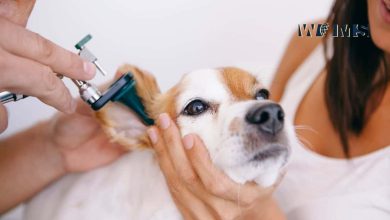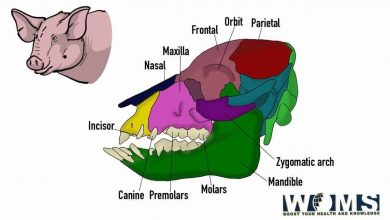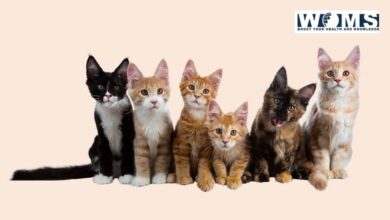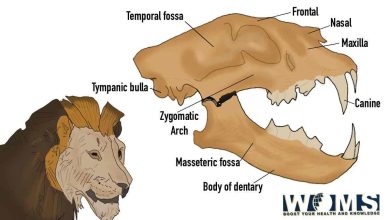Down Syndrome Cat: Causes, Symptoms, and Treatments
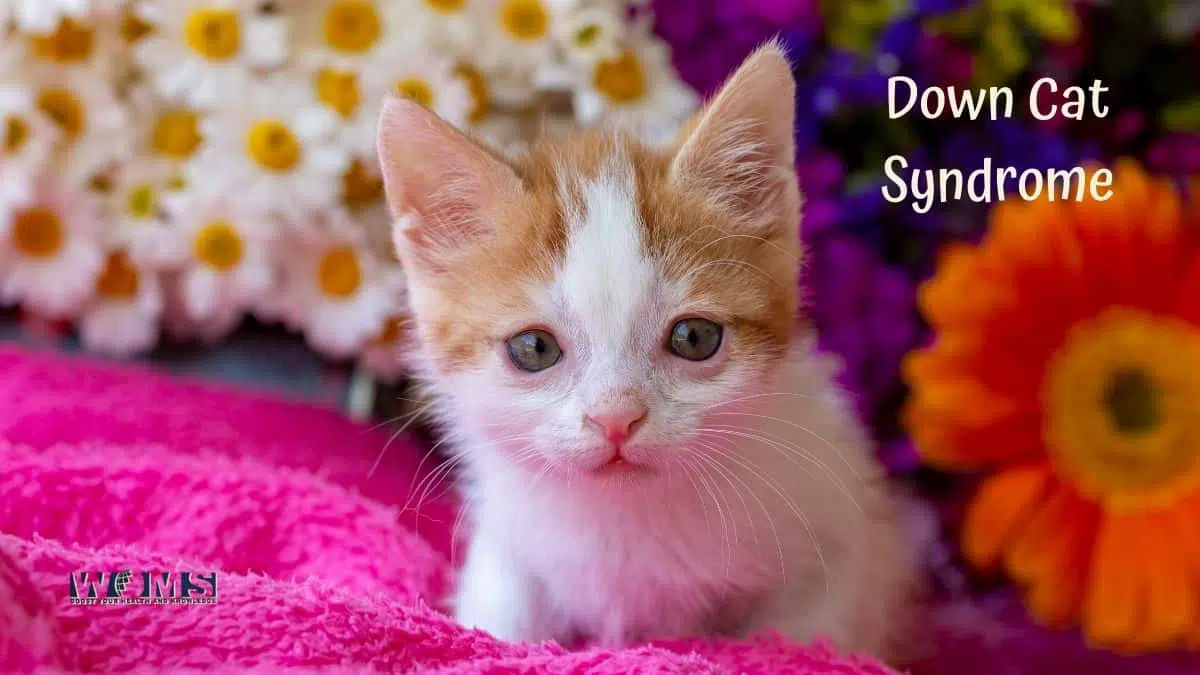
Read everything you need to know about the down syndrome cat: causes, symptoms, and treatments! Is it possible to have Down syndrome in a cat? This question was popular among, cat owners who have a concern with the health of their feline friends. Many cat owners created accounts for their own cats. However, assuming that their cats too had Down syndrome.
Cat owners typically treat their feline companions as if they were members of their own family. It’s no surprise, however, that when their cats exhibit “special” physical qualities and habits, people want to know why.
Although most cat owners aren’t aware of these characteristics, a recent wave of popular Instagram pictures of “cat with down syndrome” has brought attention to additional felines with similar appearances and behaviors.
If you’re curious about what’s generating the online uproar (and whether you should be concerned about your own cat), read on to learn everything you need to know about these “special cats.”
What are cats with down syndrome?
Down syndrome is a genetic disease that affects people who are born with an extra chromosome besides the standard 46 chromosomes. The presence of the extra chromosome has a substantial impact on a person’s appearance and cognitive abilities. This disorder has yet to be identified with a specific etiology.
Chromosomes essentially organize each cell’s DNA into bundles, allowing cells to pass on genetic material when they divide. A birth abnormality caused by an additional chromosome 21 (or partial chromosome 21) gives people with Down syndrome their common physical characteristics.
People with Down syndrome have some or all of the following characteristics, according to the National Down Syndrome Society:
- Tone deficiency
- A petite person,
- The eyes have an upward tilt.
- A deep crease runs across the palm’s center.
It’s crucial to keep in mind what not everyone with Down syndrome looks like.
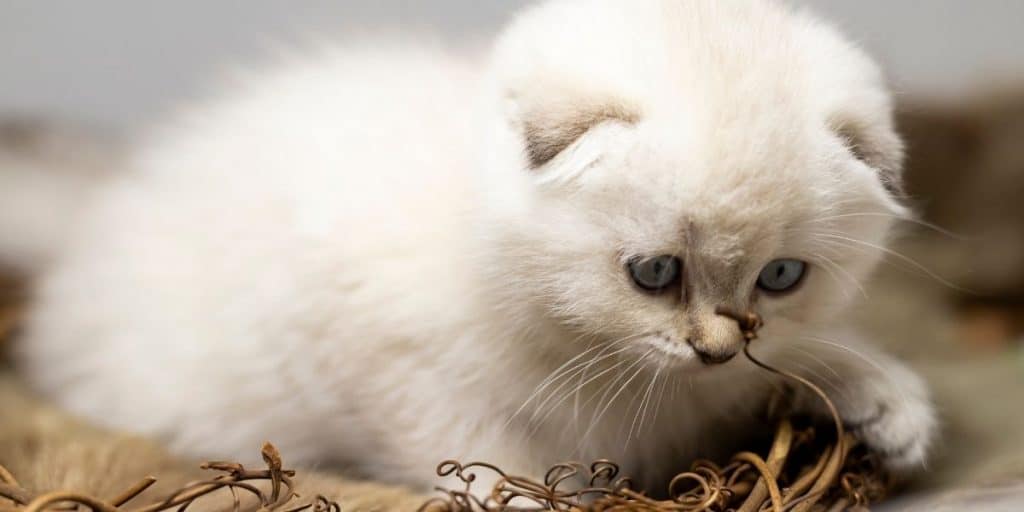
Down Syndrome Cat symptoms
On Instagram, some particularly notable cats became internet sensations after their parents claimed that their cats’ distinctive features were because of additional chromosomes. However, it’s unclear whether we have ever proven these chromosomal disease claims through genetic testing.
Many cats exhibit physical abnormalities and behavioral changes that may cause well-intentioned owners to believe their cats have Down syndrome. We may wrongly attribute the following symptoms to Down syndrome:
- Upturned eyes with a wide set
- Noses that are wide
- Ears that are tiny or shaped
- Muscle tone is low.
- Problems with the heart
- Having trouble walking or eating
- Having trouble urinating or defecating
- Hearing or vision loss
Physically and Behaviorally Disabled Cats
The physical characteristics and behavioral problems of the so-called “cat with Down syndrome” suggest a different disorder, one that may or may not be inherited. A range of issues could cause these cats’ looks and behavior, such as illnesses, neurological ailments, congenital anomalies, and even trauma.
Cats infected with the panleukopenia virus while still in the womb can develop a variety of physical and behavioral problems. Some cats have cerebellar hypoplasia, a disorder that can produce some of these “cats with down syndrome” behaviors and features.
Cats born to moms who have been exposed to particular chemicals may have a variety of congenital abnormalities affecting their face anatomy and nervous system. Head and face trauma, particularly at a young age, can cause chronic neurological damage and facial injuries that may appear to have existed from birth.
What Causes Cats to Have Down syndrome-like Symptoms?
Cats can exhibit Down Syndrome-like symptoms because of a variety of factors. Physical damage, allergic reactions, and genetic or neurological problems are all possibilities.
Regardless of the reason, see your trusted veterinarian. They can do diagnostic testing to see if your cat has any underlying illnesses.
What Should You Do If Your Cat Is Suffering From Down Syndrome-Like Symptoms?
Even if your cat does not have Down syndrome, it is crucial to speak with a veterinarian if your cat exhibits any symptoms that are like the condition. You most likely have special needs cat’ who will require extra attention.
You’ll need a good veterinarian care team to give regular veterinary care to your cat if you want it to be healthy and happy. It is your responsibility to protect your cat from potential threats if your cat has mental or physical problems.
Special requirements: Cats should be kept indoors and only taken outside under your supervision, on a leash, or in a restricted area where they cannot escape. If your cat has visual or hearing problems, you’ll need to make accommodations for them as well.
If you have a pool or a set of steps, you may need to restrict access to these locations. You may need to assist your cat with basic tasks like eating, washing, or going to the potty if they have difficulties with them.
If your cat has any other health issues, such as a heart murmur or hormonal issues like diabetes, your veterinarian will be your best resource for providing the treatment he or she requires to thrive.
Expectations for Cat with Down syndrome
Your cat may be a “special needs cat” if she has any behavioral and physical problems. Even while cats cannot develop Down syndrome, special needs cats frequently exhibit many features that may appear to the untrained eye to be like those linked with the disorder.
Special requirements: Cats cause-specific attention. Their pet owners must take extra precautions to keep them safe from risks like pools and stairwells, as well as predators and other dangers to which they are exposed.
They may require help with basic duties (cleaning, eating and drinking, and so on) as well as navigating life with vision or hearing loss. Whatever you do, solicit the help of your veterinarian. Anyone with a cat who requires special care should learn about all the solutions.
Also read: How heavy should my cat be?
Conclusion
Having a pet is like having a great companion. You will surely like to be a responsible pet owner.
Many cats exhibit physical abnormalities and behavioral changes that may cause well-intentioned owners to believe their cats have Down syndrome
Even if your cat does not have Down syndrome, it is crucial to speak with a veterinarian if your cat exhibits any symptoms that are like the condition. You most likely have special needs cat’ who will require extra attention.

Your cat may be a “special needs cat” if she has any behavioral and physical problems. Even while cats cannot develop Down syndrome, special needs cats frequently exhibit many features that may appear to the untrained eye to be like those linked with the disorder.
FAQS
-
Is it possible for cats to have Down syndrome?
Although cats can appear and act strangely, and some owners may concern, they cannot develop Down syndrome. Humans have 23 pairs of chromosomes, while cats only have 19 pairs. As a result, cats do not have the “extra chromosome 21” present in persons with Down syndrome.
-
What Causes Cats to Have Down syndrome-like Symptoms?
Cats can exhibit Down Syndrome-like symptoms because of a variety of factors. Physical damage, allergic reactions, and genetic or neurological problems are all possibilities. Regardless of the reason, see your trusted veterinarian. They can do diagnostic testing to see if your cat has any underlying illnesses.
-
What Are the Signs That Your Cat has Down syndrome?
Although no cat can have Down syndrome, you can look for features that resemble Down syndrome symptoms. There are currently no well-known genetic diagnostics for chromosomal disorders in cats.
-
Is it possible for cats to suffer mental illnesses?
Cats, like humans, can suffer from mental illnesses. If we expose a growing kitten embryo to illnesses or toxins during pregnancy, the mental abilities of the kitten may be harmed. Cats who have had a head injury may developmental issues.
-
What to Do If your Cat Shows Symptoms of Down Syndrome?
Because of their physical defects and diminished mental capacities, “special needs cats” require extra care and attention. Your cat may need to be in a less playful, crowded environment with other pets in order to avoid becoming overwhelmed, and it may require a special diet to meet its nutritional requirements. Veterinarians and pet owners must collaborate to determine what these specific cats, particularly those that are most sensitive to physical injury, require.
